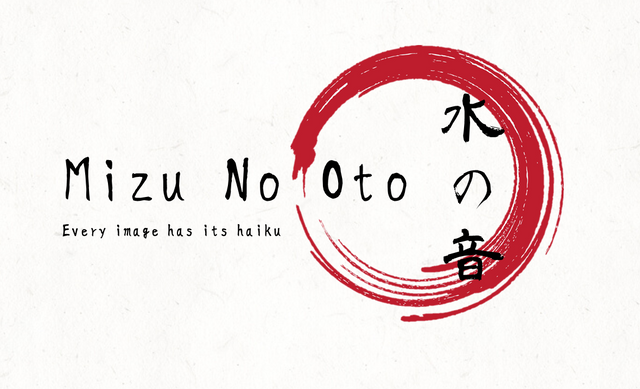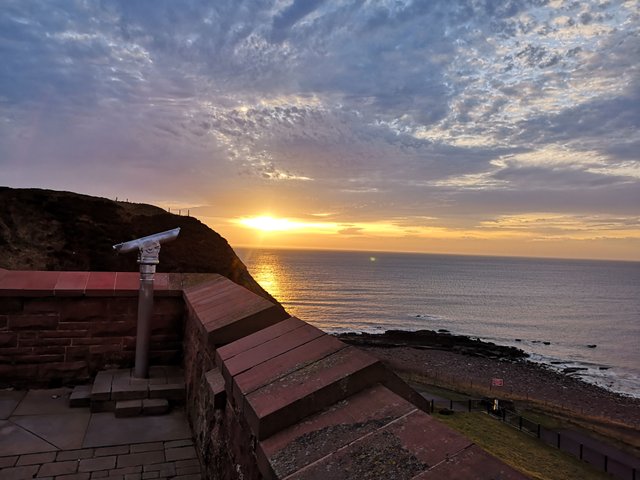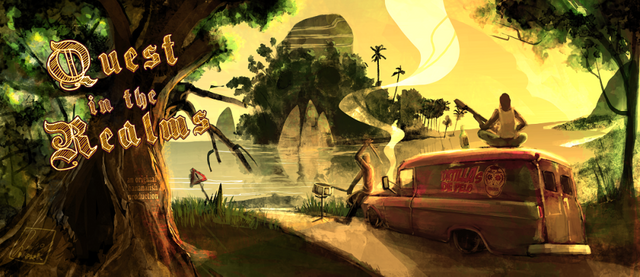
haiku by Luca Cenisi, March 8, 2019 (Mainichi Japan)
Welcome to the 23rd edition of the Mizu No Oto contest, haiku friends!
We have come a long way together, starting with following the principles of classic haiku and then continuing with a more modern style.
Now the time has come to evolve again.
From this edition the contest is divided into two parts, which will be published every other week.
In odd weeks, like this one, all haiku submitted must be in English, or at least include an English translation that will be evaluated for the purpose of the prize.
In the even weeks, we will accept and evaluate haiku in Spanish.
In this way, we would like to give space to both the linguistic "souls" of this contest.
[traducción española]
¡Bienvenido a la 23ª edición del concurso Mizu No Oto, amigos de los haiku!
Hemos recorrido un largo camino juntos, comenzando con los principios del haiku clásico y luego continuando con un estilo más moderno.
Ahora ha llegado el momento de evolucionar de nuevo.
A partir de esta edición, el concurso se divide en dos partes, que se publicarán cada dos semanas.
En semanas impares, como esta, todos los haiku enviados deben estar en inglés, o al menos incluir una traducción al inglés que se evaluará para los fines del premio.
En las semanas pares, aceptaremos y evaluaremos haiku en español.
De esta manera, nos gustaría dar espacio a las dos "almas" lingüísticas de este concurso.


For those that want to unleash their poetic potential, here is how this contest works:
• Look at the prompt image and let yourself be inspired by it.
• Write a haiku related to the prompt image. The haiku should be composed by 1-3 short verses with no title. The classical haiku form is 3 verses of 5/7/5 syllables, but other forms are allowed, as long as they remain in absolute brevity.
• The haiku should be in English or include an English translation.
• Post the haiku on your blog or in the comment section below this post. If you make your own post, don’t forget to put the link to it in the comment section below!
Don't forget to use the tag:
#haikucontest
Watch out for the @bananafish comment to this post, under which you can cast your vote (and try to win the Best Comment award)
Join the Bananafish Realms on Discord and chat with us: https://discord.gg/ZWmEUWT

Prompt Image:

[photo by @calluna]

• Kireji (切れ字), a cut between the 1st and the 2nd verses, or between the 2nd and the 3rd; the cut can be grammatical, as a sign of punctuation, or it can be a cut in the meaning, like two different images.
• Kigo (季語), an explicit or implicit reference to a season, that defines the time of the year in which the haiku is composed or referred to.
• Sabi (寂), the sense of the inexorable passage of time, the beauty or serenity that accompanies the advance of age, when the life of the objects and its impermanence are highlighted by patina and wear or by any visible repairs.
• Wabi (侘寂), the taste for frugal and natural things, rustic simplicity, freshness or silence; it can be applied to both natural and artificial objects, or even non-ostentatious elegance.
• Mono no aware (物の哀れ), empathy with nature and human life; the "feeling of things", nostalgia, regret for the passing of time, understanding of the changeability and of the transience without suffering.
• Yūgen (幽玄), sense of wonder and mystery; it represents the state of mind produced by the inexplicable fascination of things, the feeling of an 'other' universe, full of mysterious unity.
• Karumi (軽み), beauty in simplicity; poetic beauty reflected in its simplicity, free from preconceptions and moral judgment.
• Shiori (しおり), gentleness; the levity and the delicate charm that radiates from the verses, where things are evoked in the reader without aggressiveness or excessive explicitness.

Submission deadline: Wednesday 13th March, 10:00 PM, GMT +1 (Rome Time).
The results will be out on Thursday 14th March, 10:00 PM, GMT +1 (Rome Time).

Historical notes and the renga
From this week, I will begin to include brief theoretical introductions to deepen the essential characteristics of haiku, for those interested.
This form of poetry, in fact, may seem simple for its brevity, but in reality it is very complex and is the result of a very articulate aesthetic and philosophical thought, in some ways far from those who did not grow up in Japanese culture. Getting to write a good haiku is a process that starts from undressing all the mental schemes of aesthetics and poetics of European origin. One could almost say that haiku is a non-poetry.
This year I celebrate my 15 years of haiku, and I still feel at the beginning of my research.
One of the people who taught me the most in this field is Luca Cenisi, the president of the former Italian Haiku Association. In these days I am reading his essay entitled "La Luna e il Cancello” (The Moon and the Gate).
In the first chapter of the essay, Luca describes the historical origin of haiku in Japan.
It derives from a form of collective and convivial poetry called renga (linked poetry).
The renga was carried out by groups of individuals of every social class, as early as the thirteenth and fourteenth centuries.
A group of friends or acquaintances, commonly a dozen but also up to a hundred, gathered for a quiet banquet, usually in a place and in a period where it was possible to enjoy a naturalistic beauty or contemplate a seasonal phenomenon, such as flowering cherry trees, the autumn colors of the maples, the first snow, Mount Fuji in the fog…
After walking and eating, they sat in a circle and the oldest poet in the group recited the hokku: a composition of 17 syllables (on) that was used to greet those present or to pay tribute to any important guests. The hokku contained a "seasonal verse" that located the renga at a time of year.
Usually, this was the only non improvised poem, and often contained quotes and references to famous poems known to the other participants.
Then, the person who hosted the renga took the floor and recited the waki no ku, the second stanza, which was 14 on (note that the short poem called waka or tanka is actually composed of a first stanza of 17 syllables and a second stanza of 14, like the hokku plus the waki no ku). The role of waki no ku was to put a theme, inspired by the surrounding nature and the hokku.
In turn, then, the other participants improvised poems alternately of 17 and 14 on, each of which had to reconnect with the lexicon, the content or the atmosphere to the previous one, and introduce a personal variation.
The third poem, called daisan, was very important because it introduced the first contrast on the subject.
When all the participants had recited their poetry, the entire renga was written by a person in charge and the meeting ended.
Over the centuries the themes of the renga became more and more comic-popular, in fact it was called haikai no renga (joking renga). Only the opening hokku kept a solemn aura.
Eventually Matsuo Bashō and by Uejima Onitsura, in the XVII century, detached the hokku from the rest of the renga and made it a form of autonomous poetry, refining its shape, thus giving rise to our haiku, which also keeps the seasonal notation, which becomes the essential kigo.
That was the birth of the haiku!
[traducción española]
Notas históricas y el renga
A partir de esta semana, comenzaré a incluir breves introducciones teóricas para profundizar las características esenciales del haiku, para aquellos interesados.
Esta forma de poesía, de hecho, puede parecer simple por su brevedad, pero en realidad es muy compleja y es el resultado de un pensamiento estético y filosófico muy articulado, en cierto modo alejado de aquellos que no crecieron en la cultura japonesa. Escribir un buen haiku es un proceso que comienza al desvestir todos los esquemas mentales de la estética y la poética de origen europeo. Casi se podría decir que el haiku no es poesía.
Este año celebro mis 15 años de haiku, y todavía me siento al comienzo de mi investigación.
Una de las personas que más me enseñó en este campo es Luca Cenisi, el presidente de la ex Asociación Italiana de Haiku. En estos días estoy leyendo su ensayo titulado "La Luna e il Cancello" (La luna y el portón).
En el primer capítulo del ensayo, Luca describe el origen histórico del haiku en Japón.
Deriva de una forma de poesía colectiva y convivial llamada renga (poesía vinculada).
El renga fue llevado a cabo por grupos de individuos de todas las clases sociales, ya en los siglos trece y catorce.
Un grupo de amigos o conocidos, comúnmente una docena pero también hasta cien, se reuniban para un banquete tranquilo, generalmente en un lugar y en un período donde era posible disfrutar de una belleza naturalista o contemplar un fenómeno estacional, como la floración de la cereza, los colores otoñales de los arces, la primera nieve, el monte Fuji en la niebla...
Después de caminar y comer, se sentaban en un círculo y el poeta más viejo del grupo recitaba el hokku: una composición de 17 sílabas (on) que se usaba para saludar a los presentes o para rendir homenaje a los invitados importantes. El hokku contenía un "verso estacional" que localizaba el renga en una época del año.
Por lo general, este era el único poema no improvisado, y a menudo contenía citas y referencias a poemas famosos conocidos por los demás participantes.
Luego, la persona que albergaba el renga tomaba la palabra y recitaba el waki no ku, la segunda estrofa, que era de 14 on (tengan en cuenta que el poema corto llamado waka o tanka en realidad está compuesto por una primera estrofa de 17 sílabas y una segunda estrofa de 14, como el hokku junto con el waki no ku). El rol del waki no ku era poner un tema, inspirado por la naturaleza circundante y el hokku.
A su vez, entonces, los otros participantes improvisaban poemas de 17 y 14 on, alternativamente, cada uno de los cuales tenìa que reconectarse con el léxico, el contenido o la atmósfera al anterior, e introducir una variación personal.
El tercer poema, llamado daisan, era muy importante porque introducían el primer contraste sobre el tema.
Cuando todos los participantes habían recitado su poesía, todo el renga era escrito por una persona a cargo y la reunión terminaba.
A lo largo de los siglos, los temas del renga se hicieron cada vez más cómicos y populares, de hecho se llamaba haikai no renga (broma renga). Solo el hokku introductivo mantuvo un aura solemne.
Finalmente, Matsuo Bashō y Uejima Onitsura, en el siglo XVII, separaron el hokku del resto del renga y lo convirtieron en una forma de poesía autónoma, refinando su forma, dando lugar a nuestro haiku, que también mantiene la notación estacional, que se convierte en el esencial kigo.
¡Ese fue el nacimiento del haiku!

Good haiku to everybody!
Your bananafish haiku fan #1


Let’s the Bananafish Tribe grow together!

With delegations, Bananafish VP will grow and consequently the upvotes given to every contest entry will be higher.
Following the voting trail is a way to make sure you always support the other participants to the Bananafish contests, automatically upvoting the posts (but not the comments) Bananafish upvotes.
Join the Bananafish Realms on Discord and chat with us: https://discord.gg/ZWmEUWT
If you’re interested, here you can find all the information needed.

[banner credit: @f3nix]
Other Bananafish awesome activities:
Bananafish Knights interesting creative works:
@cyemela:
Red Roses, an interesting audiobook which he describes as a “Shakespeare meets Voltaire retelling of Richard III [that] helps to change the perception of this former English King”.
You can find it here: https://www.downpour.com/red-roses?sp=274337
Steemit Blog: Contests, on Kindle or parperback, that “offers 180 pages of high octane performance driven Steemit blog contest entries from the author while giving you the contacts you’ll want to know in order to begin your contest career on the Steemit blockchain.”
https://www.amazon.com/gp/product/B07MVPT72Q?pf_rd_p=c2945051-950f-485c-b4df-15aac5223b10&pf_rd_r=JJKTKWBJWMDK97NQAVRR@dirge:
Reports on Trepidation, on Kindle, is a collection of short stories; “written with a preference for realism, these stories offer plausible scenarios of the grotesque, pessimistic or supernatural.”
https://www.amazon.com/dp/B07375V8PV



Hey @bananafish! ((:
Here is my entry, thank you!
https://steemit.com/haikucontest/@joeylim/blinding-or-mizu-no-oto-haiku-contest-23rd-edition
Love how you're continually looking to improve things (:
Downvoting a post can decrease pending rewards and make it less visible. Common reasons:
Submit
This post has been manually selected, curated and upvoted by CI mod staff team. Supporting all posts that are in high quality and don’t get enough recognition.
This post was submitted for curation by: @theironfelix
This post was voted: 100%
Downvoting a post can decrease pending rewards and make it less visible. Common reasons:
Submit
Explorer spirit
Chasing suns to lands unknown
Ocean endlessness
Downvoting a post can decrease pending rewards and make it less visible. Common reasons:
Submit
Beautiful!
Downvoting a post can decrease pending rewards and make it less visible. Common reasons:
Submit
You're beautiful.
Downvoting a post can decrease pending rewards and make it less visible. Common reasons:
Submit
Thank you <3 (I won't tell your girl about this don't worry)
Downvoting a post can decrease pending rewards and make it less visible. Common reasons:
Submit
A special interpretation of the theme proposed in the photograph.
Congratulations
Downvoting a post can decrease pending rewards and make it less visible. Common reasons:
Submit
Thank you very much!
Downvoting a post can decrease pending rewards and make it less visible. Common reasons:
Submit
You're wellcome!
Downvoting a post can decrease pending rewards and make it less visible. Common reasons:
Submit
I made it to the contest in time, this week. Glad to be part of this group. Here goes...@calluna's picture was very evocative:
Feather brush to sky
Glowing golden rays to sea
Day's end in glory
Downvoting a post can decrease pending rewards and make it less visible. Common reasons:
Submit
I Like so much your haiku
Downvoting a post can decrease pending rewards and make it less visible. Common reasons:
Submit
Thank you!
Downvoting a post can decrease pending rewards and make it less visible. Common reasons:
Submit
Like a painting...nice!
Downvoting a post can decrease pending rewards and make it less visible. Common reasons:
Submit
Thank you! It is visual, isn't it?
Downvoting a post can decrease pending rewards and make it less visible. Common reasons:
Submit
Reef of fantasies! The sun that leaves the fort, hides in the sea
Downvoting a post can decrease pending rewards and make it less visible. Common reasons:
Submit
In a single line! Well played!
Downvoting a post can decrease pending rewards and make it less visible. Common reasons:
Submit
while moving lights
move in time cycles
i will observe.
Downvoting a post can decrease pending rewards and make it less visible. Common reasons:
Submit
Very mysterious!
Downvoting a post can decrease pending rewards and make it less visible. Common reasons:
Submit
My participation in this modality of the contest only for exercises in English. Next, the link and the text. Good luck!
https://steemit.com/steempress/@josemalavem/mizunooto-everyimagehasitshaiku-week23-xmuigenjq1
The sun falling.
Absents, place and people
of the change of life
Downvoting a post can decrease pending rewards and make it less visible. Common reasons:
Submit
A special way to whatch the fotograph.
I like it so much!
Downvoting a post can decrease pending rewards and make it less visible. Common reasons:
Submit
I enjoyed reading the history part. I missed them when they disappeared. Now they are back.
A neat change in the way the contest is run.
Downvoting a post can decrease pending rewards and make it less visible. Common reasons:
Submit
I hope to keep the theory part in all the next editions!
Downvoting a post can decrease pending rewards and make it less visible. Common reasons:
Submit
My first attempt at haiku..
https://steemit.com/haikucontest/@pokerm/soundles-boundless-entry-for-mizo-no-oto-haiku-contest
Downvoting a post can decrease pending rewards and make it less visible. Common reasons:
Submit
My Entry: https://steemit.com/haikucontest/@sarez/haiku-contest-entry-await-the-saviour
Downvoting a post can decrease pending rewards and make it less visible. Common reasons:
Submit
Vote your favorite haiku down here:
Downvoting a post can decrease pending rewards and make it less visible. Common reasons:
Submit
@agmoore gets my vote.
Downvoting a post can decrease pending rewards and make it less visible. Common reasons:
Submit
Much appreciated @stever82. Don't you love writing these? No wonder the form has survived centuries and adapted to cultures.
Downvoting a post can decrease pending rewards and make it less visible. Common reasons:
Submit
yup they are fun to try and always new. I love that they use images they took to show us.
Downvoting a post can decrease pending rewards and make it less visible. Common reasons:
Submit
Greetings, friends of @bananafish and participants of the contest in this new modality. Arriving a little late: the serious problems we are suffering in Venezuela, as you will know, has upset everything. I will make a very brief comment. My favorites are the @agmoore exercises and the first two participants: @lauril and @pokerm. My vote goes for the @pokerm exercise, which presents a peculiar syntactic structure (I was attracted by its use of questions) , for what is customary in haiku, and also expresses the features of time and, more, of a very interesting cosmic vision.
Downvoting a post can decrease pending rewards and make it less visible. Common reasons:
Submit
The heart came to me the meaning of @amigoponc Haikup, for him my vow.
Downvoting a post can decrease pending rewards and make it less visible. Common reasons:
Submit
I put this in the wrong place. As they used to say in my Brooklyn neighborhood when I was growing up: "Oy vey!"
I'm voting for @amigoponc. A couple of reasons: The language is compelling. Every word carries weight and together they deliver a punch. But the most persuasive reason is the way she uses the haiku, and sunset, as representations of an apocalypse. Sunset marks the end of a single day for all of us. It's a kind of temporal apocalypse we experience together. @amigoponc reflects on the end of settled times in her country. What will tomorrow bring? What will sunrise reveal?
You see, this little haiku had a really big impact on me.
Downvoting a post can decrease pending rewards and make it less visible. Common reasons:
Submit
From dusk to dawn; from God and creation to the end of winter and the beginning of summer... This was the inspiration for all the English-speaking participants in this wonderful week before the image proposed for the Haiku.
We have read to new users who, in spite of being their first participation, have achieved very good contents.
I liked all the entries, but what caught my attention was @joeylim's, even though I don't support his theory of transforming the word "shimmering" by a supposed shimm'ring contraction. For the meaning, he wanted to give it and for looking for balance in the English metric I give him my vote.
Downvoting a post can decrease pending rewards and make it less visible. Common reasons:
Submit
I identify with the haiku of @amigoponc, for it inclines my vote.
Downvoting a post can decrease pending rewards and make it less visible. Common reasons:
Submit
Greetings and beatitudes to all. Here's my entry for this week.
Downvoting a post can decrease pending rewards and make it less visible. Common reasons:
Submit
This is my first participation, I hope you like it:
https://steemit.com/haikucontest/@lauril/my-entry-mizu-no-oto-every-image-has-its-haiku-edition-23-english
Downvoting a post can decrease pending rewards and make it less visible. Common reasons:
Submit
I am back to try my hat at this again.
https://steemit.com/haikucontest/@stever82/my-entry-for-mizu-no-oto-every-image-has-its-haiku-edition-23-english
Downvoting a post can decrease pending rewards and make it less visible. Common reasons:
Submit
Here is my entry for the contest:
bricks finally cool
around waiting telescope.
lookers miss day's death
https://steemit.com/haikucontest/@steemstreems/my-entry-mizu-no-oto-every-image-has-its-haiku-edition-23-english
Downvoting a post can decrease pending rewards and make it less visible. Common reasons:
Submit
Downvoting a post can decrease pending rewards and make it less visible. Common reasons:
Submit
Hola, dejo mi participación.
https://steemit.com/haikucontest/@naylet/mizu-no-oto-every-image-has-its-haiku-edition-23-english
Downvoting a post can decrease pending rewards and make it less visible. Common reasons:
Submit
Greetings @bananafish. Here my entry on time https://steemit.com/haikucontest/@antoniarhuiz/mizu-no-oto-cada-imagen-tiene-su-haiku-edicion-23-ingles
Downvoting a post can decrease pending rewards and make it less visible. Common reasons:
Submit
My entry:
https://steemit.com/haikucontest/@atreyuserver/my-entry-mizu-no-oto-every-image-has-its-haiku-edition-23-english
Downvoting a post can decrease pending rewards and make it less visible. Common reasons:
Submit
Distant, setting Sun;
the binoculars now free,
who has some spare change?
By: @wolffeys
https://steemit.com/haiku/@wolffeys/my-entry-mizu-no-oto-every-image-has-its-haiku-edition-23
Great contest! Thanks, @bananafish!!! #haikucontest
Downvoting a post can decrease pending rewards and make it less visible. Common reasons:
Submit
Aquí mi post del reto.
Downvoting a post can decrease pending rewards and make it less visible. Common reasons:
Submit
Hola amigos, aquí dejo el link de mi participación
https://steemit.com/haikucontest/@mllg/mizu-no-oto-haiku-contest-edicion-no-23-bilingual.
Qué tengan un lindo día.
/Hi friends! Here the link of my entry.
https://steemit.com/haikucontest/@mllg/mizu-no-oto-haiku-contest-edicion-no-23-bilingual/
Have a nice day/
Downvoting a post can decrease pending rewards and make it less visible. Common reasons:
Submit
Excelente contar con la versión en español @bananafish.
Aquí dejo mi participación;
https://steemit.com/haikucontest/@josegilberto/josegilberto-s-haiku-mizu-no-oto-haiku-contest-no-23
He tenido dificultades par cargar la imagen, por lo tanto pido disculpas por adelantado por si se presenta algún error con la misma.
Compañeros participantes: éxito y feliz día.
Internet me tiene castigado y se me hace difícil acceder a otros blogs.
Downvoting a post can decrease pending rewards and make it less visible. Common reasons:
Submit
Arriving so late, but this is my haiku:
but the darkness soon shall come.
How high fly mi heart!
And here the link of my post: https://steemit.com/haikucontest/@sayury/mizu-no-oto-every-image-has-its-haiku-edition-23-english
Good luck for everybody!!!
Downvoting a post can decrease pending rewards and make it less visible. Common reasons:
Submit